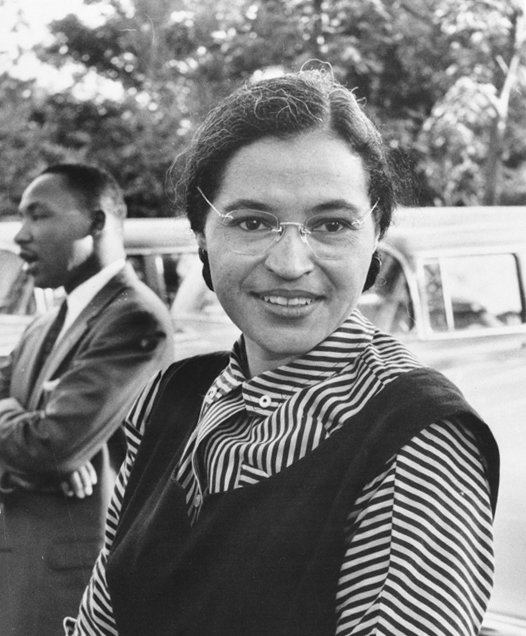On December 1, 1955, in Montgomery, Alabama, Rosa Parks made a pivotal stand for civil rights that would reverberate throughout history. By refusing to give up her seat on a bus to a white passenger, Parks ignited a spark that would ignite the Montgomery Bus Boycott, a 381-day protest against racial segregation in the public transport system. Led by Dr. Martin Luther King Jr., this boycott became a defining moment in the American Civil Rights Movement, serving as a catalyst for nationwide efforts to end racial discrimination.
Rosa Parks’ act of defiance on that fateful day was not a spontaneous act but rather a culmination of years of racial injustice and discrimination. The Montgomery bus system, like many other public facilities in the South, operated under the “Jim Crow” laws, which enforced racial segregation and denied African Americans their basic rights.
Parks, a seamstress and a secretary for the local chapter of the National Association for the Advancement of Colored People (NAACP), had long been involved in civil rights activism. Her arrest on December 1st, 1955, however, was the turning point that galvanized the African American community in Montgomery and sparked a movement that would challenge the status quo.
News of Parks’ arrest spread like wildfire, and the African American community in Montgomery rallied behind her cause. The Montgomery Improvement Association (MIA) was formed, with Dr. Martin Luther King Jr. at its helm. The MIA organized the Montgomery Bus Boycott, calling for a complete boycott of the bus system until they were treated with dignity and respect.
The boycott was a massive undertaking, with African Americans finding alternative means of transportation, carpooling, or even walking long distances to work. The economic impact on the bus company was significant, as the majority of their ridership came from the African American community. The boycott sent a powerful message to the city’s white power structure that African Americans would no longer tolerate segregation and discrimination.
Throughout the boycott, the African American community displayed remarkable resilience and determination. They faced threats, violence, and intimidation, but they refused to back down. The boycott attracted national attention, and supporters from across the country, as well as prominent civil rights leaders, joined in solidarity with the Montgomery community.
After more than a year of struggle, the Supreme Court ruled in favor of the boycotters in the landmark case, Browder v. Gayle. The court declared racial segregation on public buses unconstitutional, effectively ending the boycott and marking a significant victory for the Civil Rights Movement.
Rosa Parks’ courageous act and the Montgomery Bus Boycott had far-reaching effects beyond the city of Montgomery. It inspired similar protests and boycotts in other cities across the country, as African Americans fought for their rights and demanded an end to racial discrimination. The success of the Montgomery Bus Boycott demonstrated the power of nonviolent resistance and peaceful protest, principles that would become the cornerstone of the Civil Rights Movement.
The legacy of Rosa Parks and the Montgomery Bus Boycott lives on today. Parks’ act of defiance and the subsequent boycott are taught in schools and studied as pivotal moments in American history. They serve as a reminder of the power of ordinary individuals to effect change and challenge injustice.
In conclusion, Rosa Parks’ refusal to give up her seat on a bus in Montgomery, Alabama, on December 1, 1955, sparked the Montgomery Bus Boycott, a 381-day protest against racial segregation. Led by Dr. Martin Luther King Jr., this boycott became a defining moment in the American Civil Rights Movement and inspired nationwide efforts to end racial discrimination. Rosa Parks’ bravery and the determination of the African American community in Montgomery paved the way for significant victories in the fight for equality and justice.
SEO Excerpt: On December 1, 1955, Rosa Parks made a pivotal stand for civil rights by refusing to give up her seat on a bus to a white passenger. This act sparked the Montgomery Bus Boycott, a 381-day protest against racial segregation in the public transport system. Led by Dr. Martin Luther King Jr., this boycott became a defining moment in the American Civil Rights Movement. Learn more about this historic event and its impact on the fight against racial discrimination.

